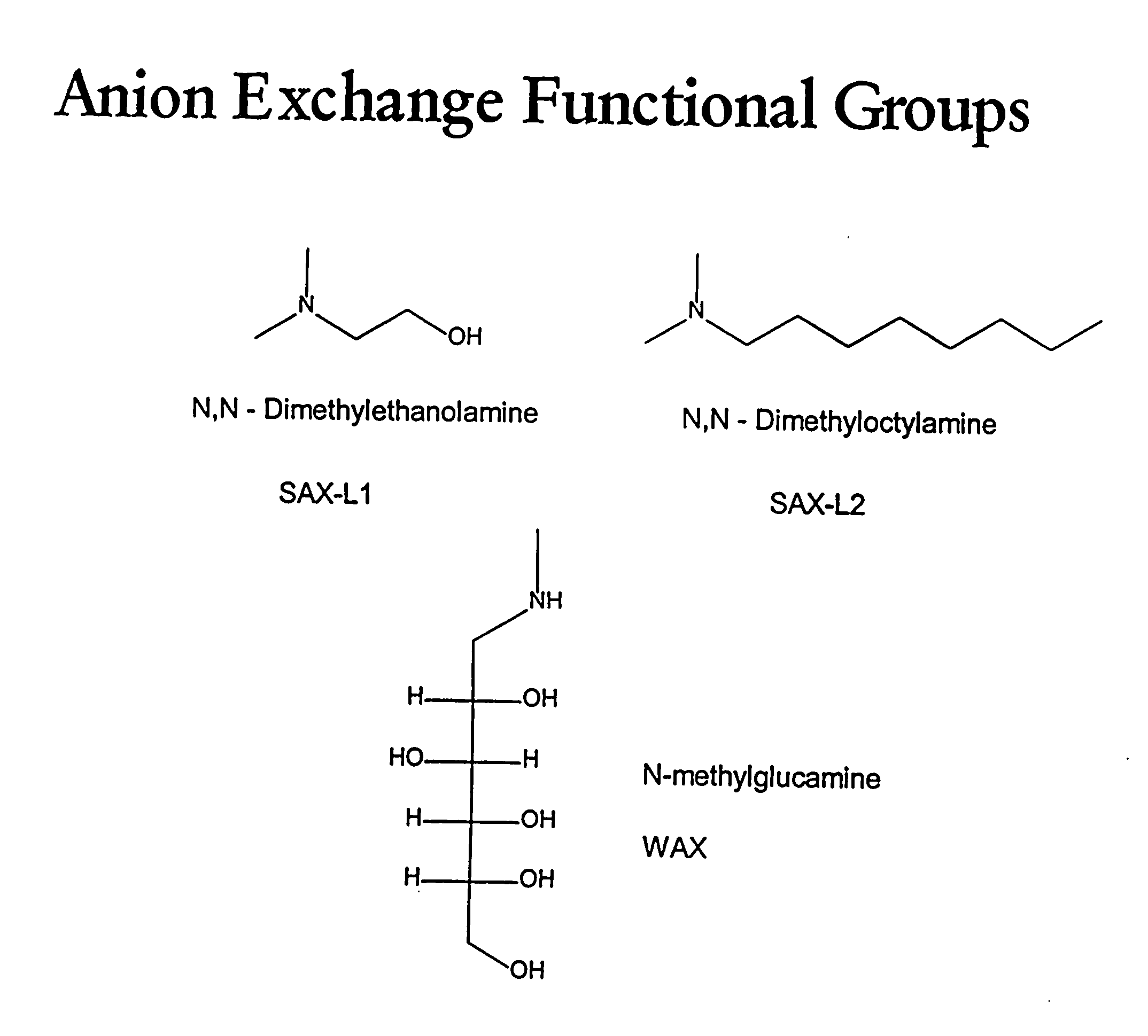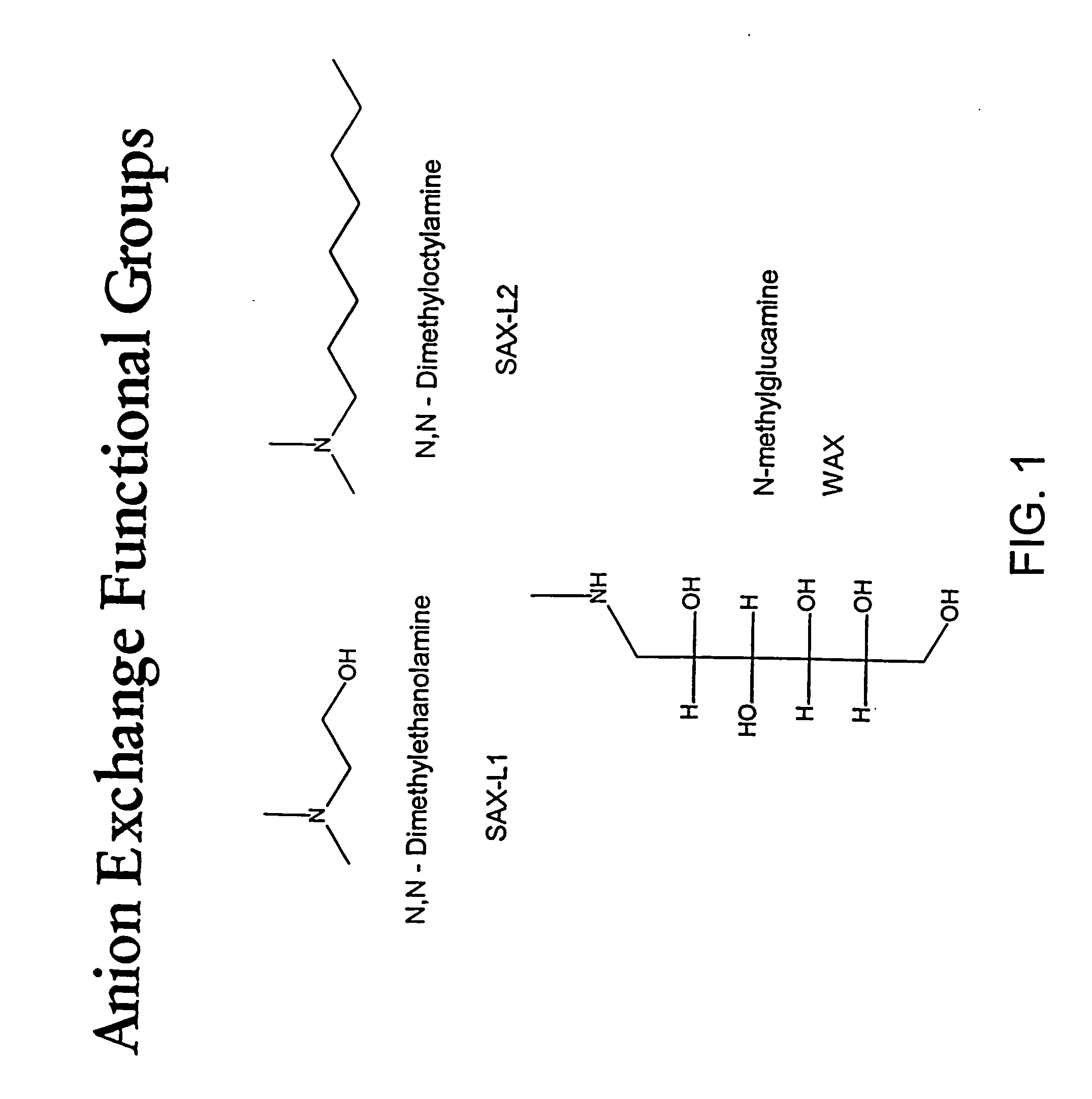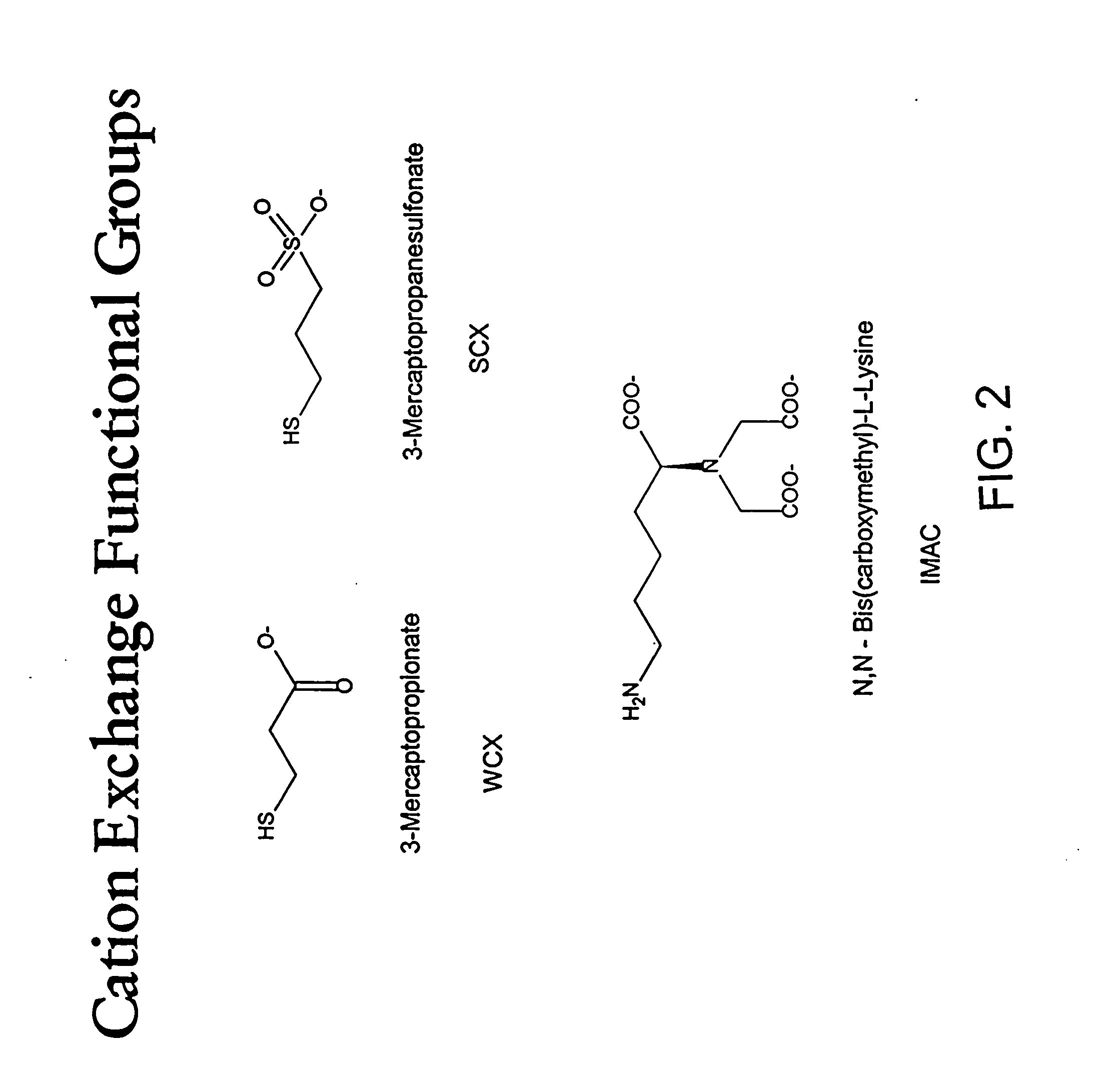Trace incorporation of fluorescent monomer facilitating quality control of polymerization reactions
a fluorescent monomer and trace incorporation technology, applied in the field of bioassays, can solve the problems of limited resolution power in each dimension, limited analytical chemistry tools presently used for this purpose, and insufficient resolution power in several ways, so as to achieve simple, rapid and uniform quality control process, and easy assessment of consistency of devices between separate production batches.
- Summary
- Abstract
- Description
- Claims
- Application Information
AI Technical Summary
Benefits of technology
Problems solved by technology
Method used
Image
Examples
example 1
Synthesis of an Anthracenyl-Polymer
A 5% initiator solution was prepared by dissolving of 2-hydroxy-4- (2-hydroxyethoxy)-2-methylpropiophenone (0.2500 g±0.005 g) in dimethylsulfoxide (5.0 g) in a 10 mL amber vial. The mixture was sonicated for 5-10 seconds to mix well
A functional monomer stock solution was prepared by combining glycerol (4.0 g±0.04 g), [3-(methacryloylamino)propyl]trimethylammonium chloride (6.0 g±0.03 g), 2% N, N-methylenbisacrylamide (6.0 g±0.03 g), de-ionized water (8.0g±0.05g) in a 20 mL amber vial. The mixture was sonicated to mix well.
A 0.2% fluorescence monomer (FM) stock solution was prepared by combining in a 5mL amber vial add following: 9-anthracenylmethyl acrylate (0.003 g±0.01 g); and dimethylsulfoxide (1500 μL). The mixture was sonicated to mix well.
A working monomer solution was prepared by mixing the functional monomer stock solution (1.0 g±0.01 g), ethanol (6.6 g±0.05 g), the 5% initiator solution (100 μL), and the 0.2% FM stock solution (10...
example 2
Chip Preparation
Grit blast MA-CVD chips were arranged in universal racks. Prior to depositing monomer on the chip, the Cartesian was set up to deliver for two or more universal racks at a time and to deposit 1.5μL of working monomer solution per spot. The monomer was deposited on the chip. After depositing the monomer, the arrays were allowed to sit in the Cartesian humid chamber for 2 minutes. The arrays were then moved to the large UV chamber purging was started. The chamber was purged at flow meter setting 30±2 for two minutes.
The U cure was stared after two minutes and the arrays were cured for 10 minutes at UV intensities ˜5-6 while the gas purge is continued. Following the cure, the chips are cleaned by washing the chips for 5 minutes with 1M NaCl at 70 rpm. The chips were then washed two times with deionized water for 2 minutes each time at 70 rpm. After the deionized water wash, the chip racks were placed in and oven pre-set to 60° C. for 20 minutes to dry. When the chi...
example 3
The array cassette containing the chips was loaded into the Fluorometer (fluorescence microplate reader) for the reading, 12 arrays at a time. The arrays were read using endpoint on spot reading with excitation wavelength 260 and emission wavelength 420 with auto cutoff point. The Fluorometer data was transferred to an Excel template and it was determined whether the arrays passed or failed the test. Any failed arrays were removed and the arrays were repacked to provide complete set of 12 arrays per cassette.
The anthracene-containing polymer was detected with the excitation wavelength set at 260 nm, with an emission maximum at 420 nm.
PUM
 Login to View More
Login to View More Abstract
Description
Claims
Application Information
 Login to View More
Login to View More - R&D
- Intellectual Property
- Life Sciences
- Materials
- Tech Scout
- Unparalleled Data Quality
- Higher Quality Content
- 60% Fewer Hallucinations
Browse by: Latest US Patents, China's latest patents, Technical Efficacy Thesaurus, Application Domain, Technology Topic, Popular Technical Reports.
© 2025 PatSnap. All rights reserved.Legal|Privacy policy|Modern Slavery Act Transparency Statement|Sitemap|About US| Contact US: help@patsnap.com



